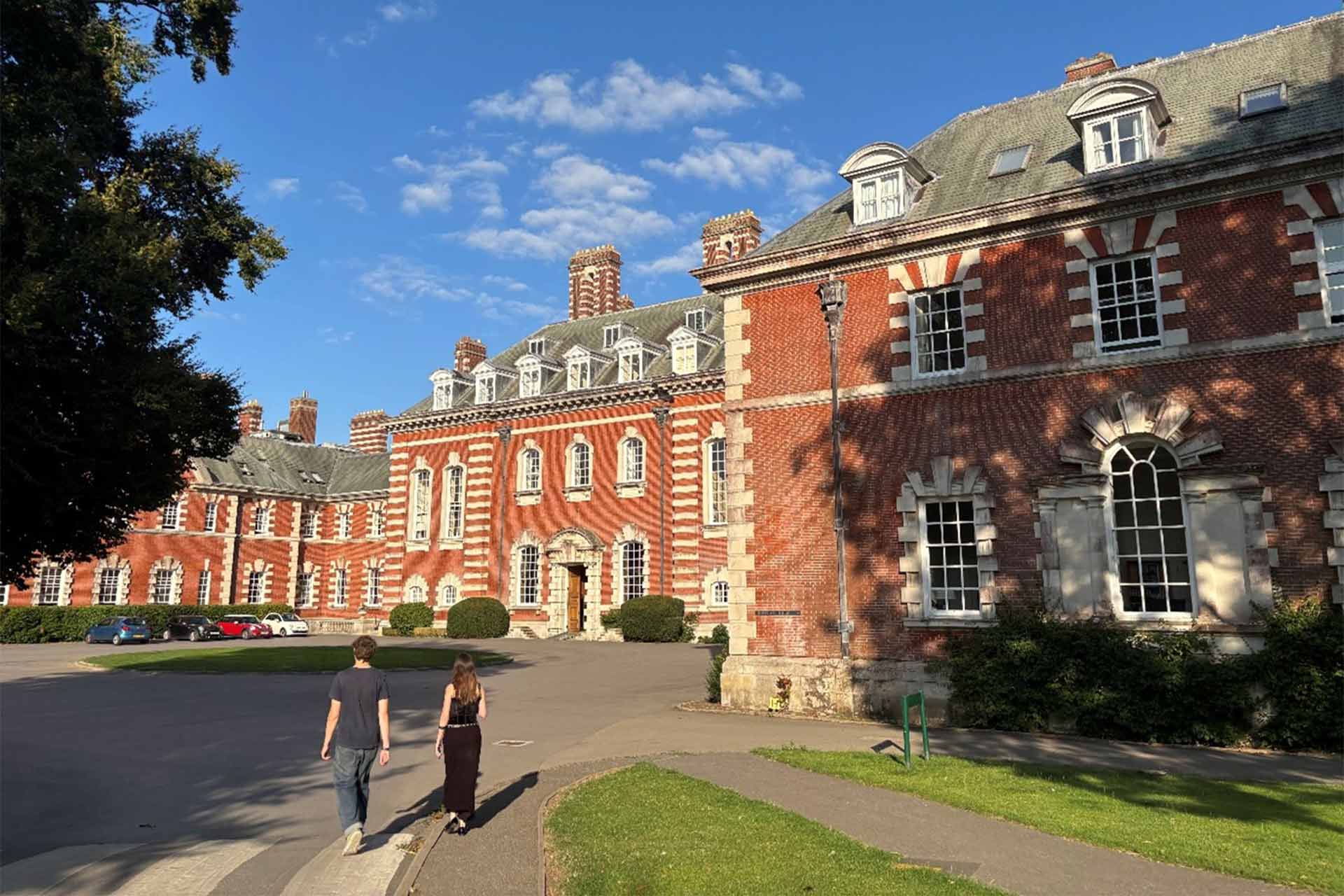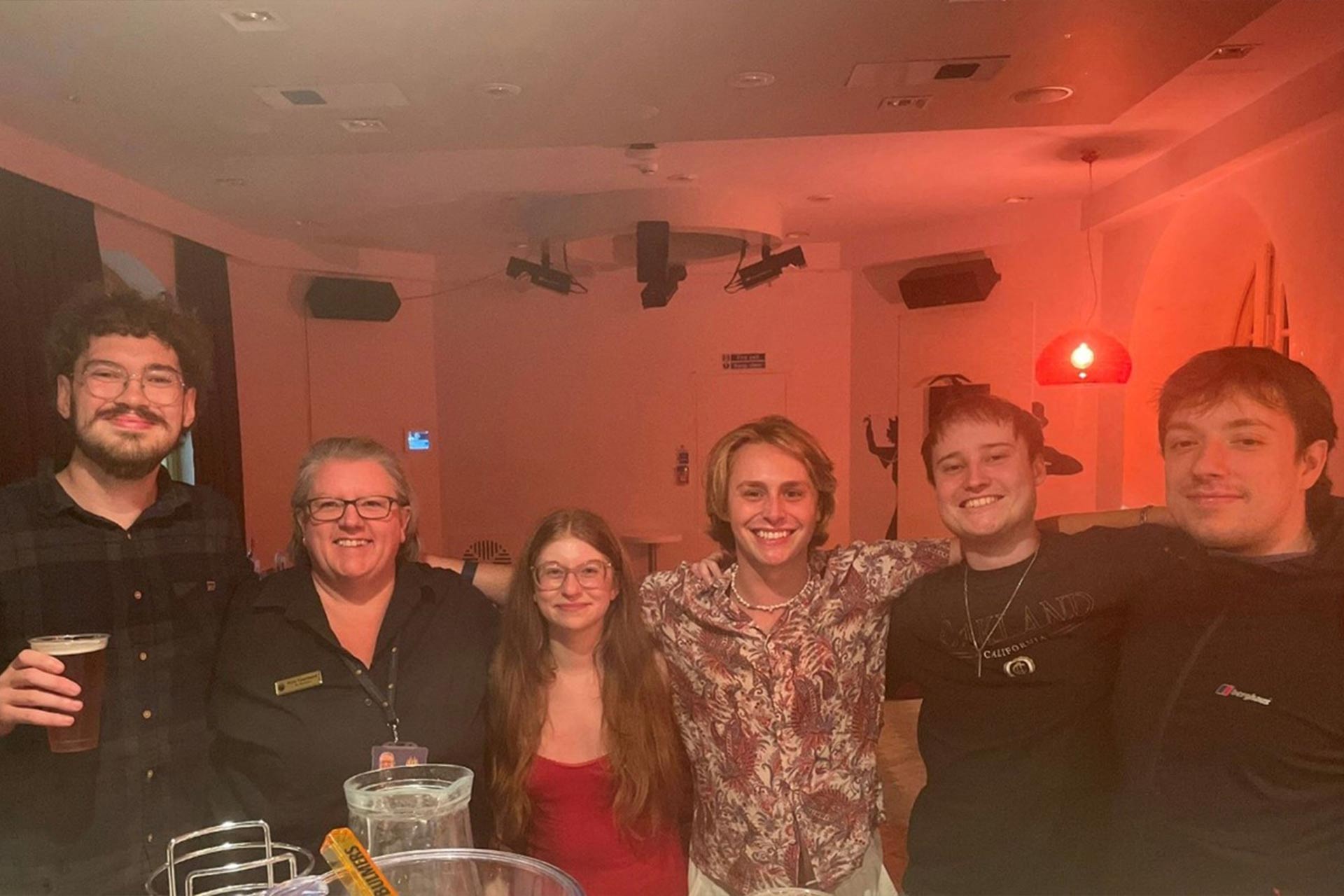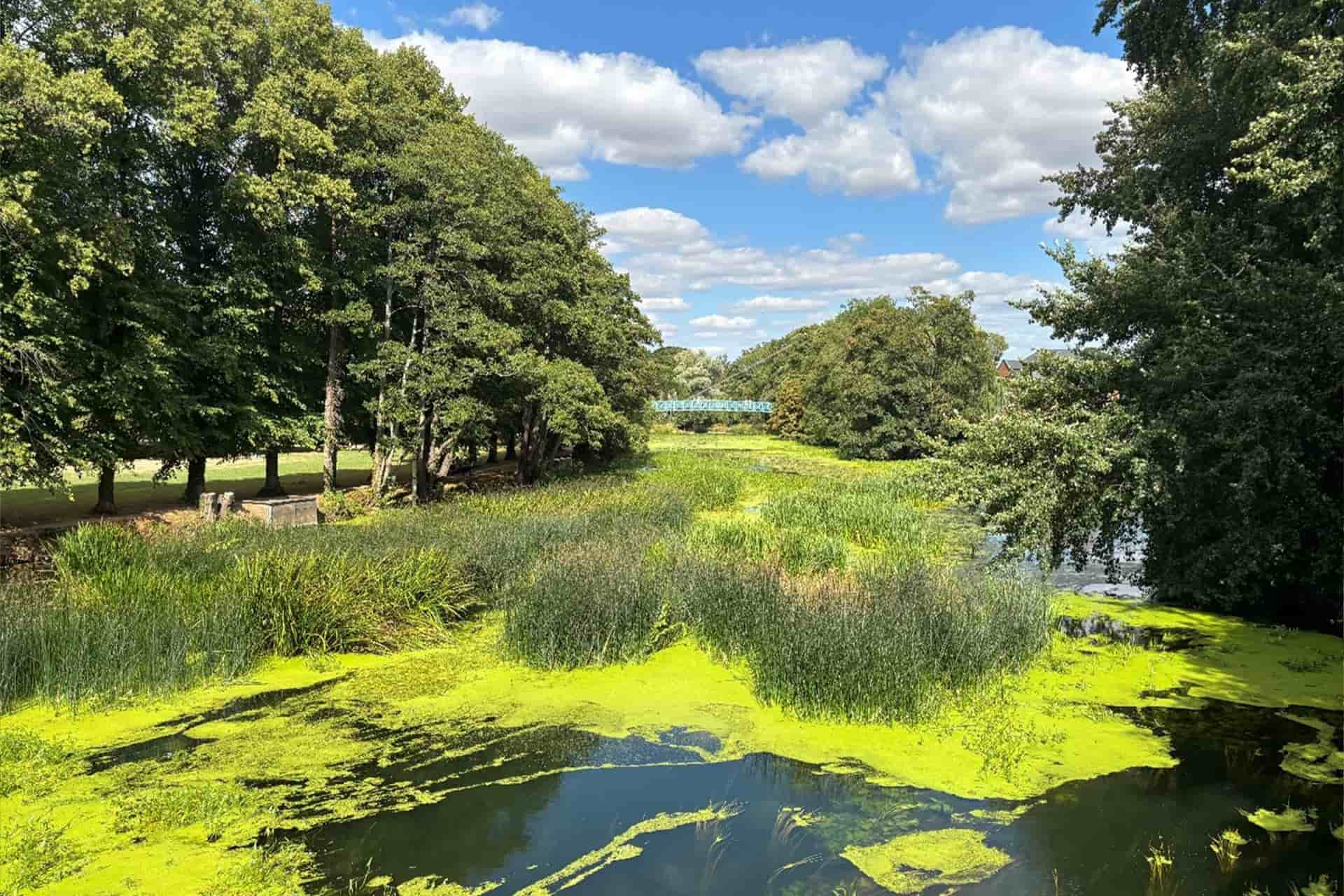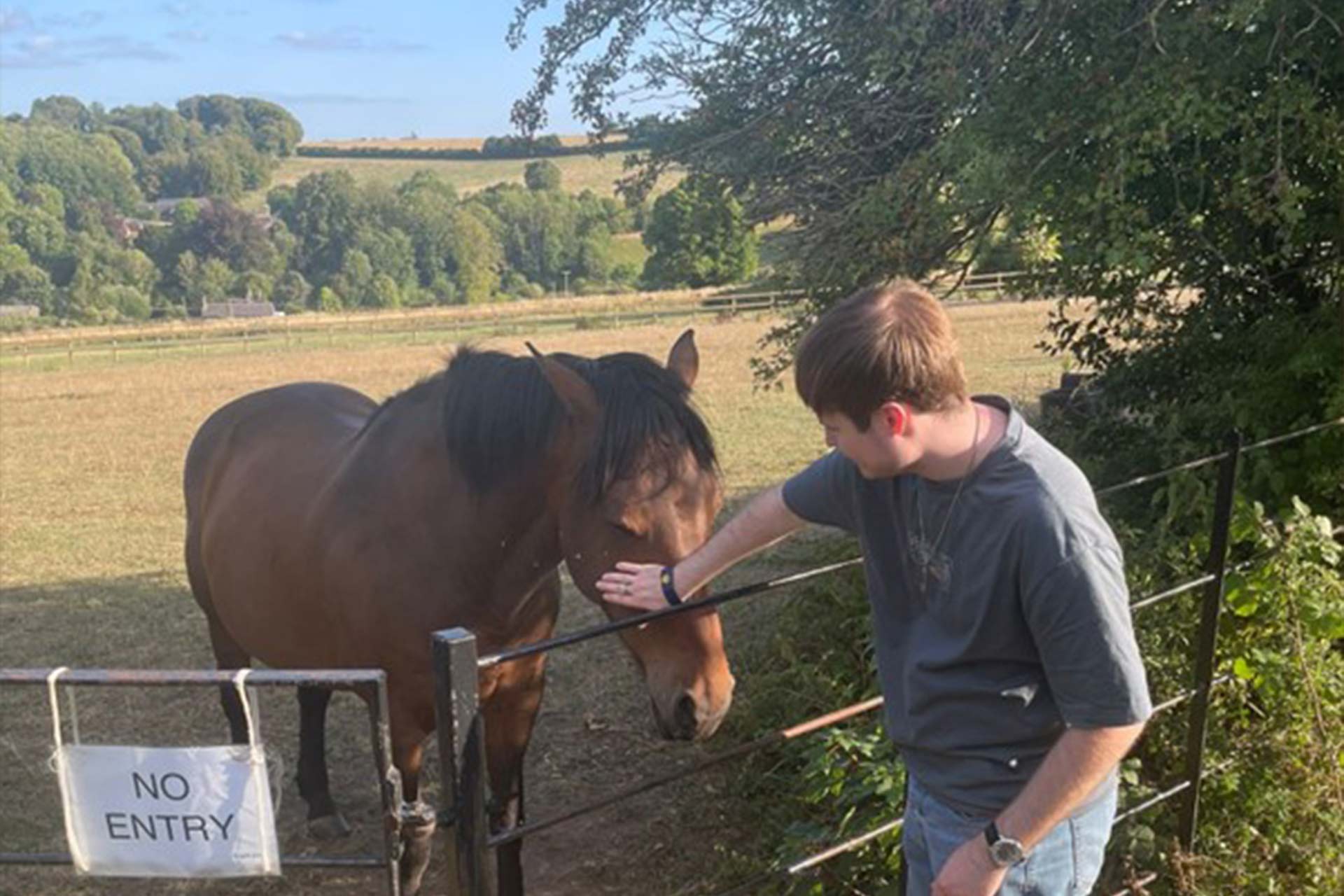
At the height of this summer, I spent two weeks at Bryanston School, Dorset. Alongside 300 students aged 16-65, and some 40-plus tutors, I lived and breathed the Ancient Greek language. During the 13-hour workdays, between 3 daily lessons, a tutor-led seminar, guest lectures, and extra-curricular activities, I was able to experience the countryside of Blandford and the school’s surrounding villages, all whilst learning a new language.
As a complete beginner, day 1 opened with a lesson on the alphabet. By the end of the same day, I had translated the first 3 passages of the JACT Reading Greek textbook, began covering declensions of adjectives, nouns, and verbs, and started with a small vocabulary list of 20 terms to memorise for the 09:00 test the next day. My class, a mix of PGRs and A-Level students, by day 14 had reached the very limit of what can be considered ‘beginner’ level.
I have now translated the first 7 sections of the Reading Greek coursebook in their entirety, covered 5 of the 7 cases and their declensions, and have, regrettably, become intimately familiar with many irregular verbs. I have also memorised and been tested on some 500 vocabulary terms. I am happy to report that I and fellow University of Liverpool student, PhD Researcher Ethan Coulson-Haggins, achieved the top marks in our class, tying for top position and representing our University in earnest. From total beginner to translating simplified Socratic and Herodotean texts in only 14 days, I am amazed by the progress that I have made, and the teaching, structure, and culture of the JACT Greek Summer School.

Bryanston becomes the omphalos of Ancient Greek language and culture in the UK during the Summer School, by collecting a multicultural group of academics and students of the Ancient World under one roof (or dome) for the duration of the course. During my studies, I engaged with texts and discussions spanning from the Homeric world to the Byzantines, and enjoyed a variety of extracurricular activities. I was treated to a rendition of Aristophanes’ comedy Peace in translation, and a performance of Euripides’ Iphigenia In Tauris in Ancient Greek. These live shows were executed by the student body, using props made by our cohort, exemplifying only a few of the creative activities available to me during the course. I experienced the latter performance in the school’s outdoor amphitheatre and was treated to a lecture on the tragedy’s context by Dr. John Taylor himself.
In the second week, a concert was held, where I enjoyed recitals by the JACT Greek Summer School (JGSS) student and teacher choir, symphony orchestra, string quartet, and brass band. There were additional solo displays, including a sung excerpt of Virgil’s Aeneid, Book 4, in Latin, and a moving performance of Book 19 of Homer’s Odyssey sung with a lyre, which was one of the most impressive displays of Greek Language aptitude and musicality that I have ever seen. I also engaged in physical activities, such as house rounders, tug-of-war, and a tennis tournament that I spectated, alongside visits to the school’s gymnasium and pool facilities. Of the guest lectures, I was most captivated by our own Dr. Thomas Harrison, Keeper of the Department of Greece and Rome at the British Museum and the former Rathbone Professor at Liverpool, who delivered a comparative presentation of the BM and the Acropolis Museum in Athens. However, every single lecture and seminar was engaging and interesting, and I was able to learn about cutting-edge research from many disciplines and periods of the Greek world, for which I am incredibly grateful and enriched.
Blandford:

I was lucky to also experience the beautiful surrounding grounds and countryside of Bryanston and Blandford, enjoying the Devonshire summer. I walked along the River Stour and Meadows, visited historic pubs and landmarks, and experienced Salisbury’s Cathedral and gardens in Wiltshire. The historic Bryanston building, built in the late 19th Century, is itself a historic monument, and has hosted in its halls students and scholars of great success since 1928, which has now added 4 more Liverpool alumni. I have been incredibly privileged to have lived and studied there, enjoying its landscape and facilities, and fully taking in the Ancient Greek language experience. This was largely thanks to the JACT Bursary, partially funded by the Classical Association, which I, and many others, were a recipient of. The JACT Greek Summer School itself is calling for more university-level attendees and PGRs, so I implore you to take advantage of the opportunity and experience this fantastic course at any age or level of Greek. You will be joined by a welcoming group of students and staff and be integrated into the study of the Ancient World, unlike any other experience available in the UK.

The JACT Greek Summer School at Bryanston is one of the most academically engaging, rigorous, and enjoyable extra-curricular activities I have been able to partake in during my time at Liverpool, and I give my thanks to the University, which financially supported me in my attendance of the course. I would also like to thank the entire staff at Bryanston, the teaching staff at the JGSS, and the friends I made on the course and those who worked at the school, for making my experience so enjoyable. A final, special thanks goes to Cathy Bothwell, the course Secretary and my class tutor. Without her, the Summer School would not have been possible, and I would not have had such an amazing time at the JACT Greek Summer School.
Explore our Archaeology, Classics and Ancient History courses